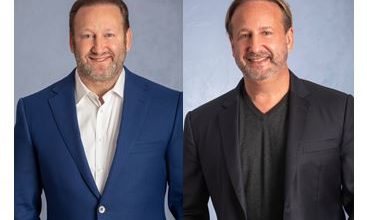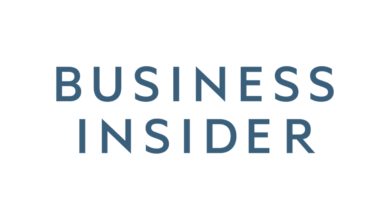Financial literacy will help Florida’s kids develop healthy habits with money | Opinion
Florida will introduce financial-literacy classes in public schools.

With studies showing personal spending skyrocketing while personal savings drop, particularly in metro areas such as Miami — notorious for flashing Ferraris and cash — it’s important to consider the impacts of these actions on current and future generations. April is National Financial Literacy Month. It’s a good time to ask ourselves whether we are creating a new generation of financially irresponsible young people and how we can be better role models for them. Florida Gov. DeSantis’ bill, requiring high school students to complete a financial-literacy course to receive a standard diploma, is a step in the right direction. It should motivate other states to follow suit. Unfortunately, our current education system still lacks what’s really needed: a formal financial-education curriculum. These measures can only get us so far, as the examples set at home are far more powerful in shaping youths’ attitudes toward money.

The data do not paint a pretty picture. A recent Bankrate survey shows two-thirds of us do not expect our personal finances to improve in 2022, while a Washington Post article reports high-income consumer spending, which bounced back in the spring, has topped pre-pandemic levels by more than 11% and continues to grow. Moreover, new studies from the National Bureau of Economic Research confirm financial literacy directly correlates to an individual’s capacity to overcome macroeconomic difficulties such as COVID-19 or the 2008 financial crisis. According to the latest NBER statistics: Four in seven Americans are financially illiterate; worldwide, only one-third of adults understand basic financial concepts; and only 24% of millennials understand basic financial topics.
What should we do? First, recognize how common it is for folks — even highly educated business leaders — to make terrible day-to-day financial choices. For a variety of reasons, we develop emotional attitudes to money that can make or break us. It’s critical to work with a qualified financial professional and follow proven tenets of personal finance, including: purchasing appreciating assets over depreciating assets; not using high-interest credit cards to “keep up with the Joneses;” sticking to a budget that includes “paying yourself first” so you build your assets; and creating short-, mid- and long-term financial goals, while using the proper financial vehicles. Based on the Institute of Financial Wellness’ experience assisting people across all stages of life, we give this general guidance to help ensure we set the best possible example for our children.
- Discuss with children how much things cost. They may not appreciate what it costs to run a household, so creating conversations about what a home, car, groceries and college tuition cost can help.
- Share the family’s budget and all the family’s costs, in addition to illustrations of families living below and above your socioeconomic level.
- Discuss the average income of different careers. You can use this as an opportunity to discuss what career they may want to choose.
- Instead of giving them an allowance or paying them for chores, which trains them to have the mind-set of employees rather than business leaders or entrepreneurs, reward them for conceptualizing new-business concepts. A lemonade stand or garage sale at your home can teach valuable lessons.
- Show them how investments in stocks, bonds and real estate could provide passive income so they earn money “while they sleep.” At the dinner table, discuss what excites them and how things they are passionate.
- At the dinner table, discuss what excites them and how things they are passionate about could provide their livelihood.
- Help them realize their strengths and how they can find careers that use their innate talents.
- Explain the critical importance of integrity and accountability. These traits are key for personal and professional success.
- Discuss basic banking principles: paying bills, how you establish good credit.
- Explain the meaning of the best scorecard of financial success: net worth. Discuss how little things they do each day — every dollar they choose to spend or save — can determine this.
For many who aren’t in the financial industry, these concepts might not come naturally. That’s OK — nobody is expected to be a genius at everything. For these reasons, it’s important to rely on the right support. The Institute of Financial Wellness provides user-friendly content and resources from an advisory board of nationally known thought leaders — at no cost. Take advantage of this and other resources available. It’s all about helping children develop healthy financial attitudes and habits — and leading by example.
Read more at: https://www.miamiherald.com/opinion/op-ed/article260313200.html#storylink=cpy
Rees Bridges brings a unique value to the IFW as both a highly accomplished creative professional and a successful financial services executive to serve in his role as Senior VP, Marketing & Communications.
Over the last decade Rees has served as the lead marketing & communications professional for a Fortune 500 Financial Services firm. He oversaw all advisor marketing strategies, client communications, and the entire firms branding and marketing initiatives.
Rees continues to pursue his passions as a creative professional & musician for over 30 years, with an impressive profile and reputation as a designer, performer, teacher, and studio musician. Here is a little secret: He serves in the role as an international clinician for Mapex drums, Paiste Cymbals and held the record for world’s fastest drummer between 2006 and 2007.
Rees grew up in London, England and currently resides in Miami, Florida. When not at work, he enjoys spending time with family and friends, traveling, and indulging in his passions for music and creative pursuits.






